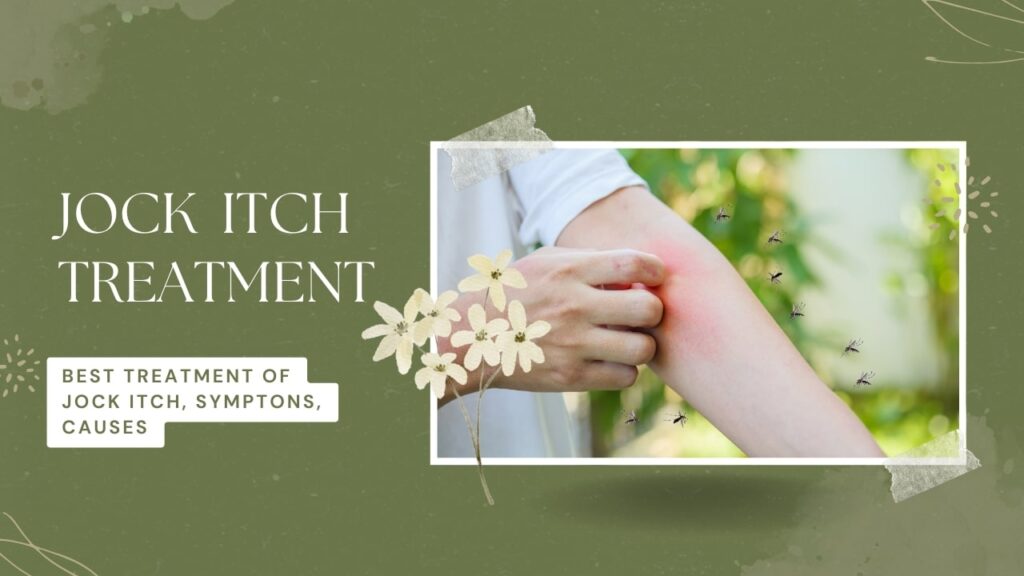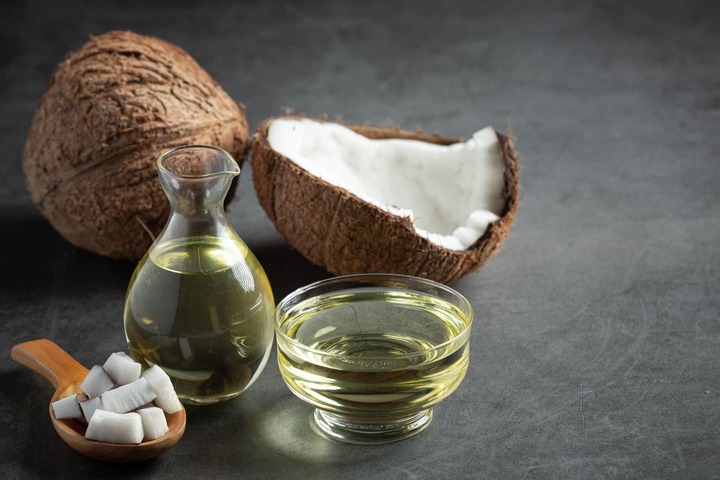Last updated on May 21st, 2025 at 12:25 pm

Introduction
Many guys, especially those who enjoy fitness, suffer from the irritating but common illness known as jock itch. Jockey scratch is a condition that causes an itchy, red rash to appear in the groin area. It can make even the most basic tasks intolerable. You’re not the only one who has experienced this unpleasant situation; there are practical ways to restore your skin to its previous state of not being bothersome. We’ll look at the top jock itch remedies in this blog post, as well as if coconut oil is a good alternative and offer helpful advice on how to stop outbreaks in the future. Come on, let’s get comfortable again!
Understanding Jock Itch
What Is It Jock Itch?
Tinea cruris, the medical term for jock itch, is a fungal infection that thrives in warm, humid conditions. This example typically results in an itchy, pink, and occasionally painful rash that primarily affects the buttocks, interior thighs, and groin. Jock itch is caused by a fungus that is related to ringworm and athlete’s foot, making it a persistent annoyance.
Signs of Itchy Jocks
Jock itch symptoms are difficult to ignore. Among them is a rash in the groin area that is red and scaly.
- continuous discomfort and itching.
- a feeling of burning, especially when exercising.
- Skin that peels or flake off.
- Being aware of these signs aids in prompt diagnosis and treatment, halting the progression of the illness.
Gaining an understanding of these symptoms facilitates prompt diagnosis and treatment, thereby halting the progression of the illness.
Causes of Jock Itch
Jockey scratch is caused by a number of variables, including:
- Moisture and Sweat: Fungal growth thrives in an environment that is ideal for excessive sweating.
- Clothing That Is Too Tight: Clothes that are too tight or don’t breathe well might retain heat and moisture.
- Direct Touch: Jockey scratch can result from sharing personal things, clothing, towels, or other items with an infected person.
Induced fungal infections are more common in those whose immune systems are compromised.
Best Treatments for Jock Itch
Antifungal Creams Available Over-the-Counter
OTC (over-the-counter) antifungal treatments are frequently the first line of defence against jock itch. Clotrimazole, miconazole, or terbinafine are examples of active chemicals in these lotions that specifically target and destroy the fungus.
Application Advice
- To apply the cream, first clean and dry the afflicted region.
- Layer on a small amount and massage it in gently.
- Even if symptoms subside and continue using it consistently for the entire recommended period.
Prescription drugs
A doctor may recommend stronger antifungal drugs for situations that are severe or chronic. These may consist of topical medications with increased potency or oral antifungals. For treatment to be effective, pay close attention to the doctor’s directions.
Organic Treatments
Due to their mild nature on the skin and general health benefits, natural medicines are favored by many men. Several natural remedies that work well include:
- Apple cider vinegar: It can help stop the growth of fungi because of its antifungal qualities. Apply using a cotton ball after diluting with water.
- Tea tree oil: can be applied straight to the skin after being diluted with a carrier oil. It is well-known for having antifungal and antibacterial qualities.
- Garlic: Garlic powder naturally contains antifungal properties. To provide relief, make a paste and apply it to the affected area.
Is Coconut Oil Good for Jock Itch?
Coconut oil has become well-known as a natural treatment for a number of skin issues.

The benefits:
- Lauric acid, which is present in coconut oil, has been established to have antifungal properties against fungus infections.
- Moisturizing Effect: It helps ease skin irritation and lessen itching.
- Kind and Secure: Fit for delicate skin types, this is an excellent choice for people who experience negative reactions to traditional therapies.
Method of Use:
- Dry and clean the impacted area completely.
- Coconut oil should be used sparingly and massaged into the skin.
- Until the symptoms go away, repeat this procedure two to three times a day.
- As beneficial as coconut oil is, it’s important to keep an eye on your symptoms. Consider seeking switch treatments from a healthcare provider if, after a week, there’s still no change.
Preventing Jock Itch
Always choose prevention over treatment. Use the following tactics to lower your chance of developing jock itch again:
- Preserve cleanliness: Maintain a clean and dry groin area by taking regular showers, especially after exercise.
- Don Air-Transome Clothing: Reduce sweat accumulation by wearing loose-fitting, moisture-wicking apparel.
- Keep Personal Items Separated: To stop the spread of fungi, don’t share towels, clothes, or athletic equipment.
- Put Antifungal Powders to Use: To prevent moisture buildup, apply antifungal powders to the groin area.
Conclusion
Although jock itch can be an annoying and persistent ailment, it can be avoided with the correct care and precautions. There are a variety of solutions available to suit your preference, ranging from over-the-counter treatments to natural cures like coconut oil. Recall that preventing future outbreaks requires practising excellent hygiene and taking preventative action.
Never hesitate to contact a healthcare provider if you require specific guidance or further help. Taking preventative measures will guarantee that you remain itch-free and active. Your comfort and health are of utmost importance.
Enjoy your workouts without itching while being at ease and self-assured.
FAQs on Jock Itch Treatment
1. What is the duration of the healing process for jock itch?
The amount of infection and the type of treatment utilized determine how long jock itch takes to recover. Within two weeks, mild cases that are treated with over-the-counter antifungal treatments will go away. If prescription medications are required, more severe instances could take a month or longer to resolve. Effective healing requires the consistent administration of medicine.
2. Can an itching jock cause damage to other body parts?
In reality, in the event that it is not swiftly treated, jock itch might spread to other parts of the body. Direct touch, as well as the use of infected towels and clothing, can result in the fungus spreading to the feet (athlete’s foot) or other regions. treating the infection as soon as possible and ensuring proper hygiene
3. Is there a spread of jock itch?
When two people come into close proximity to each other or share personal objects like clothing and towels, the slightly contagious rock itch can spread. Save personal belongings for different people, and practice proper hygiene to lower the danger of transmission.
4. Can I work out while taking care of jock itch?
While taking care of jock itch, you can still work out, just be careful not to let the condition become worse. Take a shower right away after working out, and dress in loose-fitting, moisture-wicking clothing to keep the region dry. Treat the afflicted area with an antifungal medication as prescribed, making sure it stays dry and clean.